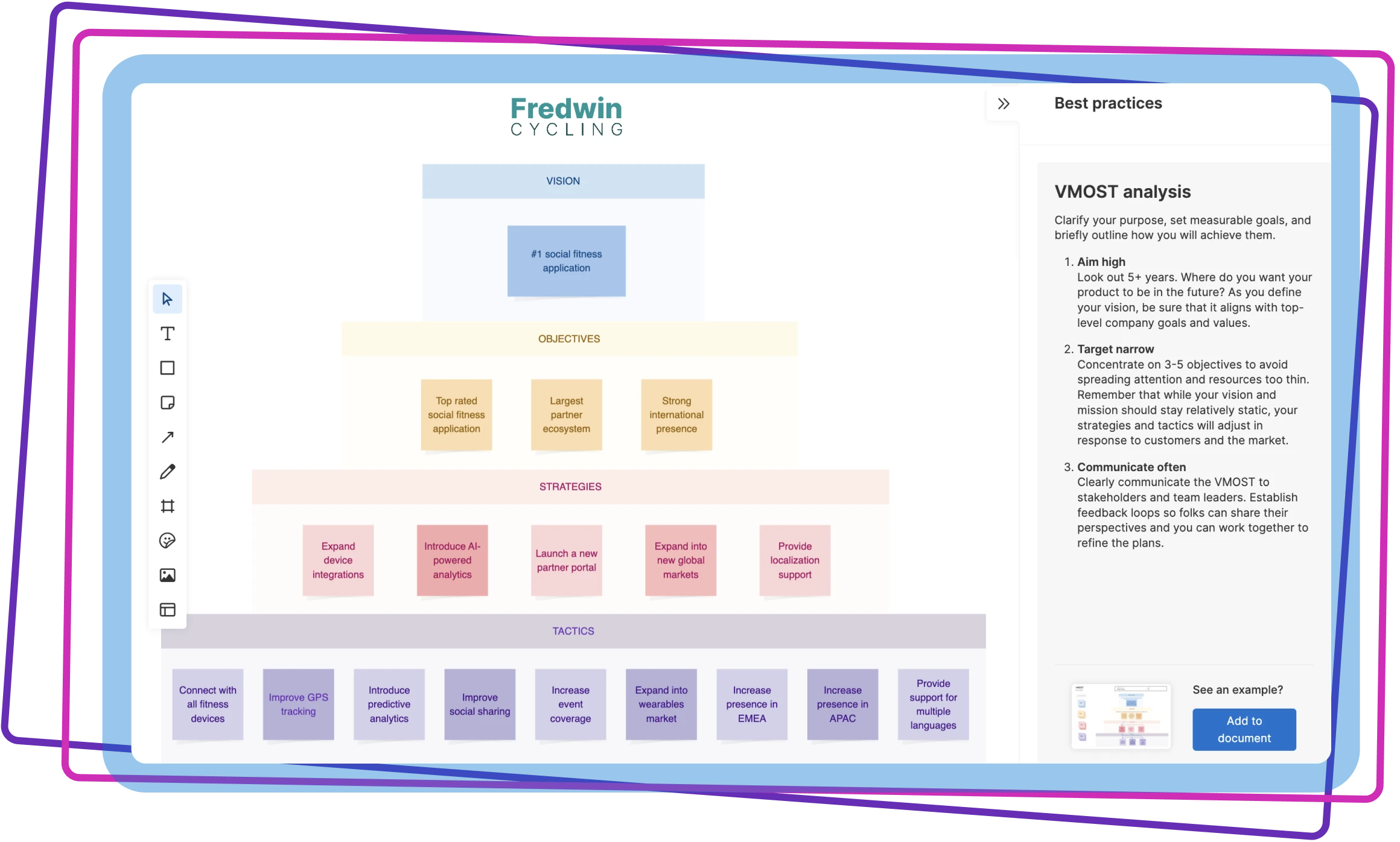

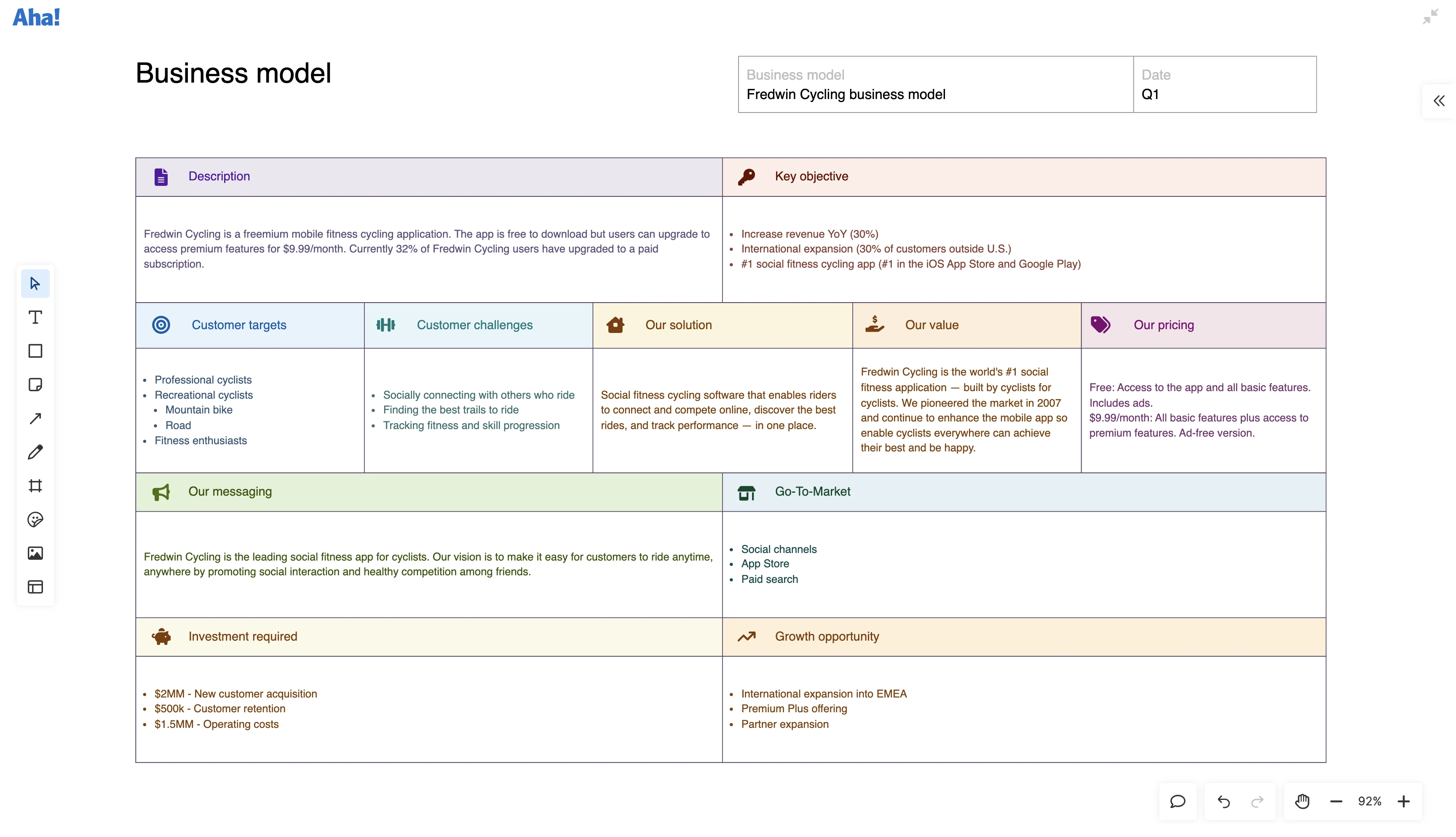
Establish your business model — identifying your target customers and the value your solution provides. Or use a lean canvas to assess the viability of a big idea before moving forward. You can also capture your product vision to show what you hope to achieve.
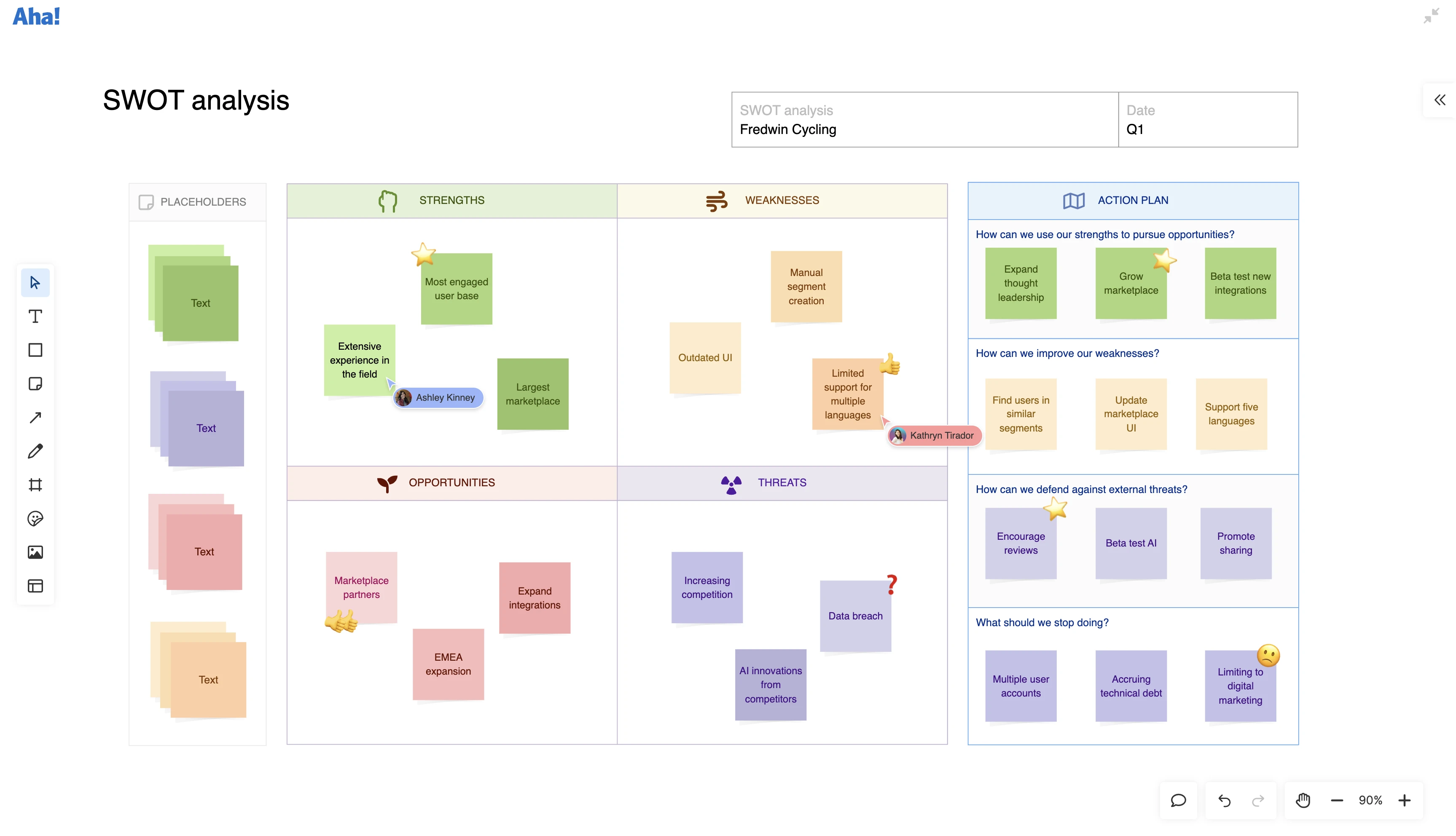
Evaluate the internal and external factors that impact the success of your product or company. Use the SWOT template to consider your strengths and opportunities against your weaknesses and threats. The Porter's 5 forces model is perfect for gauging buyer power, alternative solutions, existing competitors, new rivals, and partner leverage.
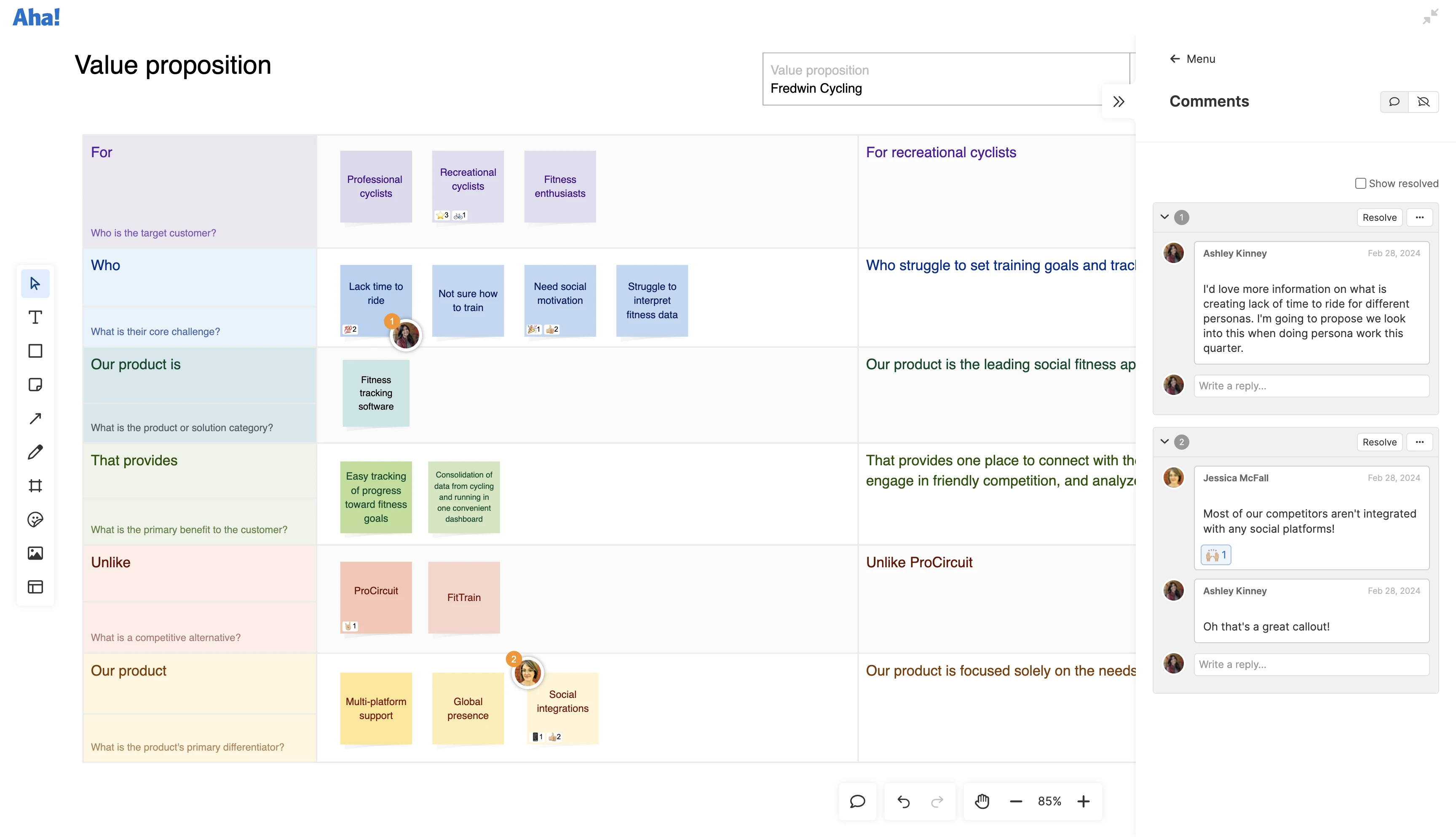
Distill the key elements of your product positioning — including who your audience is, what they need, and the unique ways your product can help. Then, craft a compelling value proposition so everyone understands the value your product provides to customers beyond features and functionality.
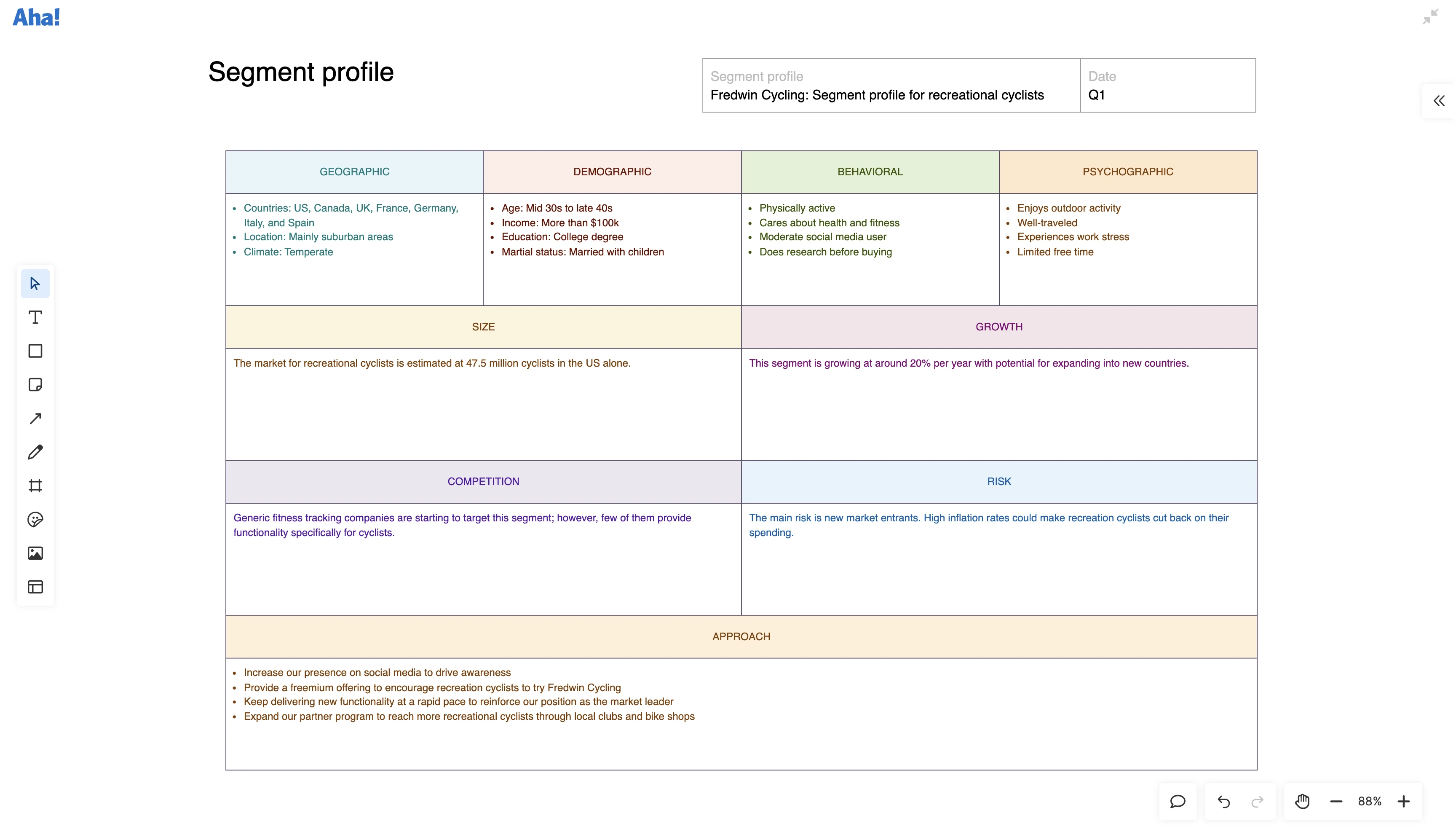
Research and engage your ideal customers. Create a segment profile to hone in on the best way to serve the needs of specific customer groups. Then, build out a holistic marketing strategy using the 10Ps marketing matrix and capture the essential elements of your approach.
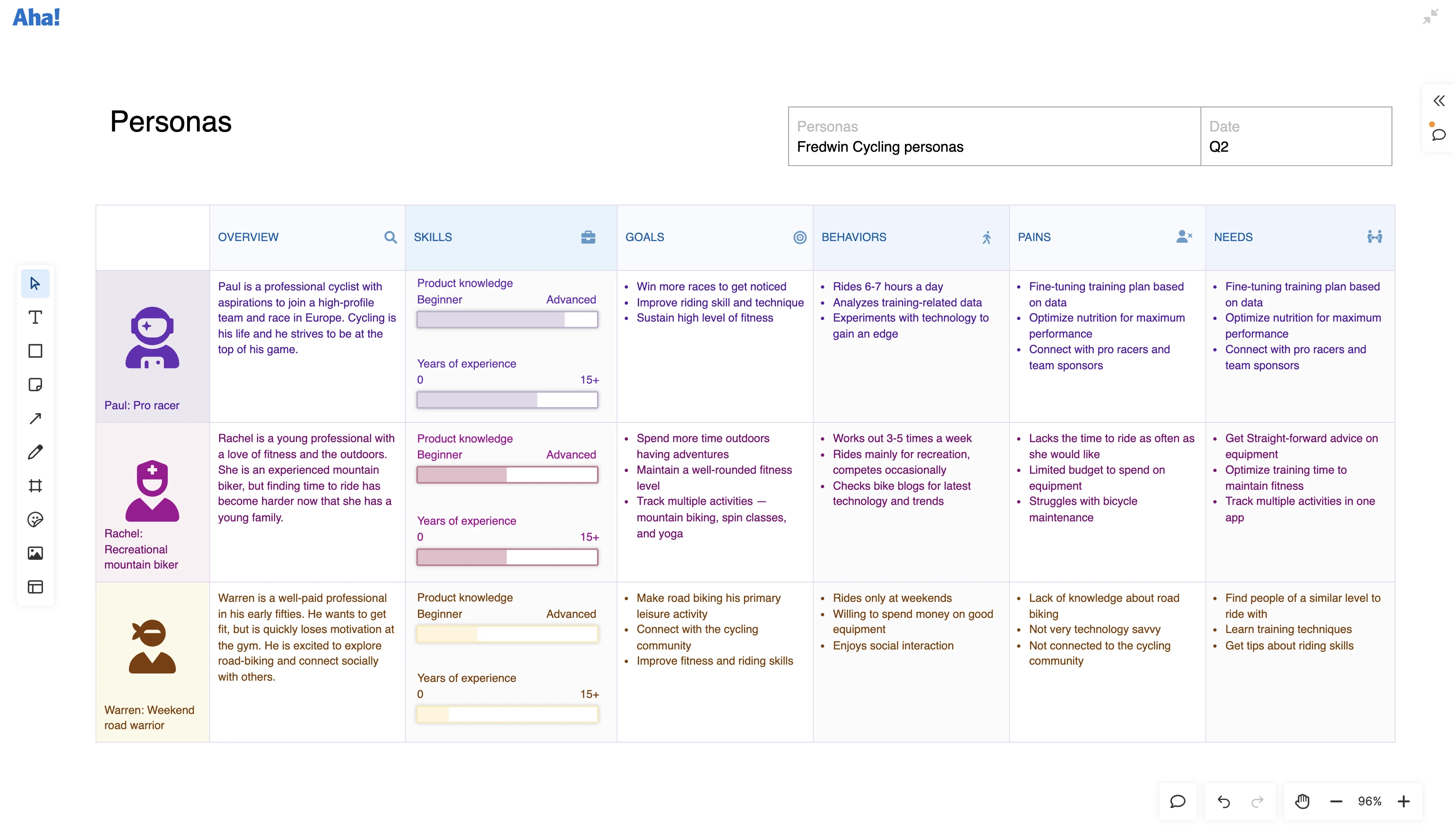
Launch successfully. Formulate buyer and user personas to reach people where they are. Conduct a thorough competitive analysis to know who you are up against. Define a pricing and packaging strategy that best positions you in market. Then, create an end-to-end customer journey map — working with cross-functional teams to deliver a Complete Product Experience.
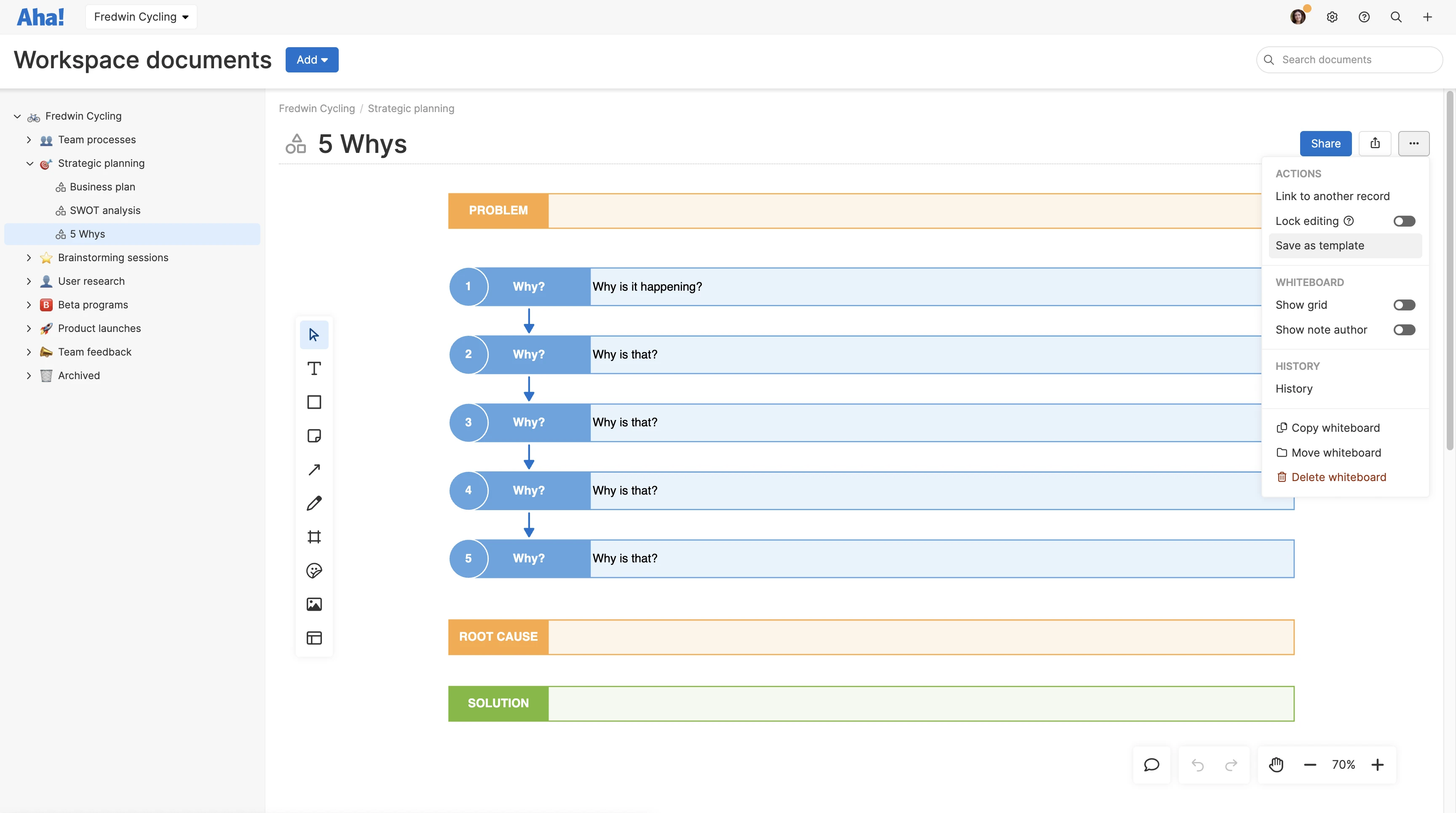
Find all of these strategic models — and many more — in the template library. Quickly adjust each framework to match your needs and fill in the details. Or craft your own whiteboard templates and make them available to the team.